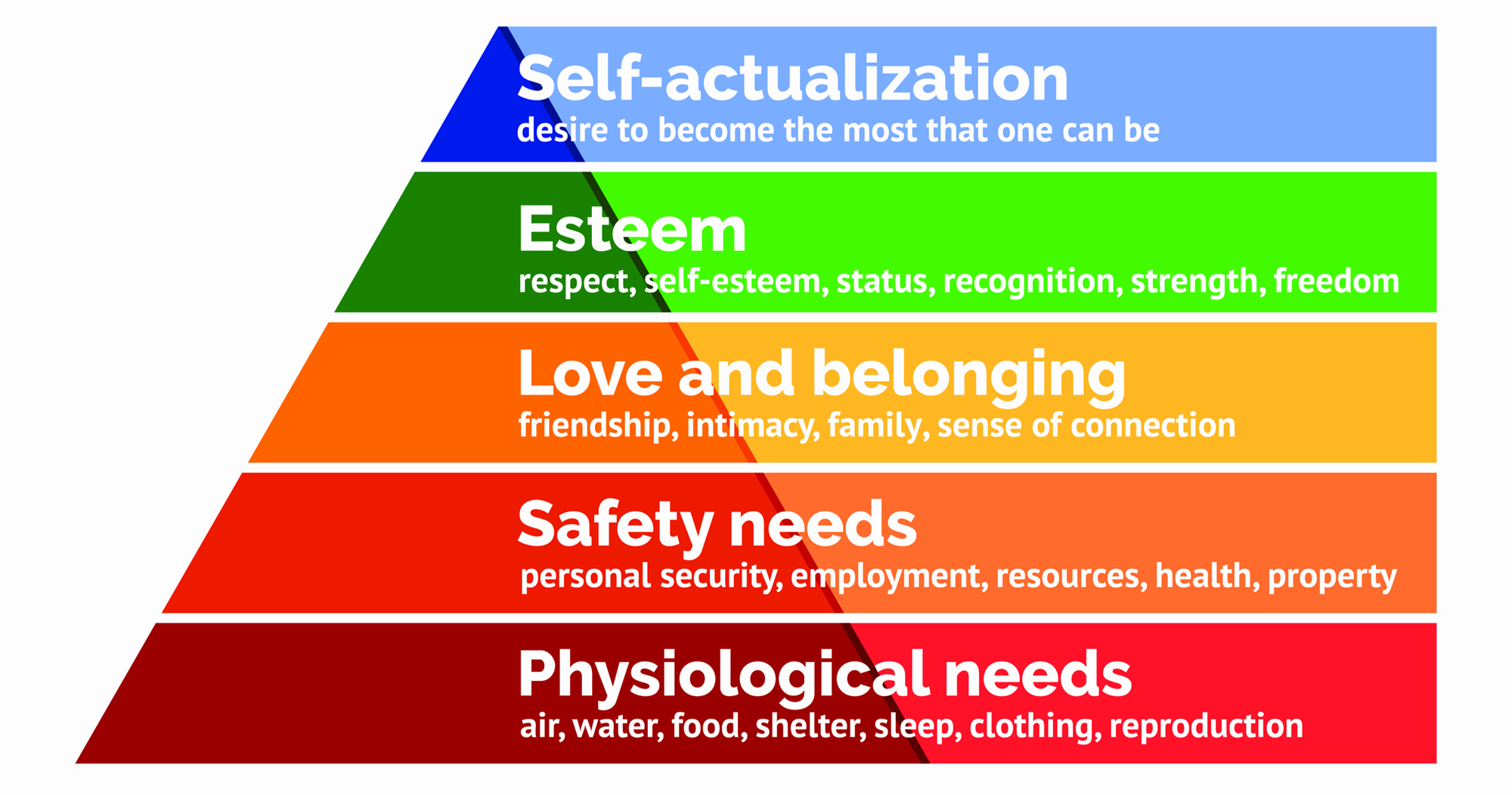Stress
Maslow’s hierarchy of needs

- self actualization — realizing one’s fullest potential; what do you want to be?
- esteem — also includes achievement
stress
- stress: the body’s response to a demand
- stressor: the demand put on the body
- eustress: manageable stress that can lead to growth
- distress: uncontrolled, overwhelming stress that is destructive and negative
- general adaptation syndrome (GAS)
- alarm = fight or flight response
- also includes tertiary “freeze” response
- resistance = body attempts to return to normal
- exhaustion = “wear and tear,” illness may occur
- physical symptoms of stress
- headaches, diarrhea, dizziness, loss of appetite, increase in appetite, dry mouth, heartburn
- positive ways to handle stress (examples, not a conclusive list)
- hobbies
- exercise
- deep breathing
- taking breaks
- relaxation and meditation
- talking through problems
- negative ways to handle stress (examples, not a conclusive list)
- violence
- procrastination
- destruction
- addiction
- taking anger out on others
- denial
- over eating
- under eating
- defense mechanism: a strategy used to cope with a stressful situation
- can be positive or negative, or dependent on the situation
- positive mechanisms relieve stress whereas negative mechanisms add to stress
- most mechanisms can be both
- sublimation: positive; the direction of energy into a useful rather than unacceptable goal
- identification: may be positive or negative; assuming the qualities of someone you admire
- compensation: positive; making up for weakness in one area by excelling in another area
- rationalization: negative; making excuses for actions or feelings
- daydreaming: may be positive or negative; fantasizing to escape unpleasant realities
- displacement: negative; transforming emotions or thoughts from the original source to another
- regression: negative; reverting to immature behavior to express emotions
- projection: negative; putting your own faults onto someone else
- denial: negative; refusing to recognize or otherwise acknowledge an emotion or problem
